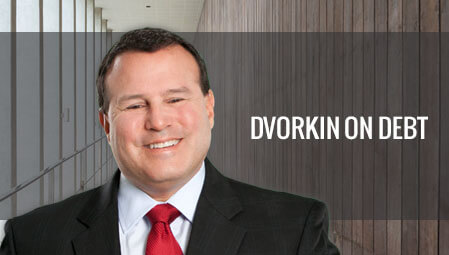You can teach your sons and daughters about money, even after they’re all grown up
How much did you spend to raise your children? Not as much as children will spend to raise your grandchildren.
A child born in 2013 will cost a middle-income family nearly $250,000 to raise to adulthood, says a recent report from the U.S. Department of Agriculture. That includes food, housing, and education — but not the cost of college.
In 1960, the USDA said that figure was $25,230 — or $199,000 in today’s dollars. That’s a big jump in our own lifetime.
As a CPA who founded one of the nation’s largest credit counseling agencies more than two decades ago, I can predict one of the unintended consequences of this report: More adult children will beg their parents for money to help raise their grandchildren.
If my experience is any indication, it won’t work. Instead of helping their children out of debt, these family loans will drive parents into debt — and their adult children will soon follow. Here’s why, and here’s how to avoid that fate.
The psychology of money
As a financial counselor for more than 20 years, I’ve seen Americans fall hopelessly into debt in a myriad of ways. The most common reasons are job loss, medical crises, and divorce. Among senior citizens, however, the No. 1 reason is always the same: Their children borrowed more than they could afford and by not paying it back, drove them into debt.
What’s interesting is that, when I talk to these parents, they know they’re making a risky financial move. Yet they do it anyway. Why? Oftentimes, it’s because of guilt. These parents feel guilty about something in their past. Perhaps they worked long hours and weren’t around to see their children enough. Perhaps they regret being too strict or too lenient in their childrearing. Whatever it is, parents often lend money to their adult children and blame themselves for the financial straits their offspring now find themselves in.
It doesn’t help that today’s adults face a tougher economic climate than any generation since our own parents weathered the Great Depression. Since we had it easier, we also feel a sort of economic survivor’s guilt. Once you acknowledge your own feelings, you’ll realize that money isn’t just cold, hard cash. It’s as emotional as anything else in our lives. Now you can make the right moves.
Gift or loan?
If the amount is manageable enough for your budget, consider an outright gift instead of a loan — for both financial and emotional reasons. A gift of under $14,000 doesn’t trigger the IRS gift tax. I’ve also learned human beings are more likely to pay back big loans than small ones. While that sounds backwards, remember what I said about psychology. We’re more likely to justify not paying back a small amount (“he won’t even miss it”) than a large one (“that’s a lot of money, I got to pay it back”).
Go to the source
One common complaint I hear: “I lent my child thousands of dollars to fix his roof, but he spent it on a new car.” Instead of simply writing a check to your child, consider paying the bill directly. If your child tries to manipulate you by saying, “I don’t want to hassle you,” turn that around: “I don’t want to hassle you. I’m retired, let me haggle with the business and pay for it.”
Tie installments to paychecks
When you make a loan to your adult child, it’s typical to ask for monthly installment payments. Instead, ask for even smaller installments every other week — if that’s how your child is paid at work. Many banks and employers allow for “direct deposit” into a myriad of accounts. Before you agree to a loan, tell your child you want him to set up his online bank account to allow this, or ask them to go to Human Resources and have a set amount diverted into your own account. This way, you get paid automatically, and your child doesn’t really miss the money — or get tempted to spend it elsewhere.
Pay it forward
You can also ask your child to repay a loan not for you — but for your grandchild’s college fund. You can set up what’s called a 529 college savings plan and ask your child to make deposits into it. Some states even offer a tax deduction, so your child is actually saving you money by paying you back.
Finally, I’ll leave you with this thought: Just because your children are grown-up doesn’t mean you still can’t teach them some wise lessons. Just as when they were small, doing for them isn’t as valuable as teaching them to do on their own.
Howard Dvorkin is a CPA and chairman of Debt.com, an educational resource for those who want to conquer all forms of debt in their lives.









